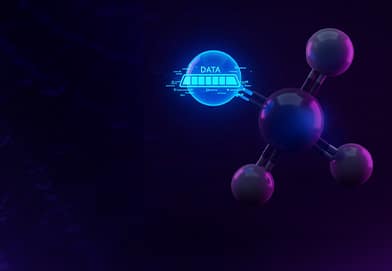The 2024 Summer Olympics in Paris is breaking ground in the world of data analytics with some interesting technological advancements that will shape the future of games. Just like the athletes, the Olympics has trained since Tokyo 2020 to uphold their motto of “Faster, Higher, Stronger” and push itself to the limit.
While the Olympics have always been a global spectacle showcasing human athleticism, this year’s event highlights the integration of advanced data analytics and technology into every aspect of the games. This should not come as a complete surprise. After all, the International Olympic Committee (IOC) has been diligently working on this since the 2016 London Games.
You don’t have to be a sports enthusiast to appreciate the use of modern data analytics techniques in an ancient practice. Whether you love sports or are indifferent, the insights and pioneering tech used in Paris 2024 mark a significant shift in the Olympic Games.
Shaping the Future of the Olympics Through Data Analytics
Monitoring personal metrics is an important part of an athlete’s training process. Data analytics helps individuals identify trends in their routines, making training more effective. This rudimentary form of diagnostic analytics is exactly how Olympians get to the Olympics in the first place. The same goes for the event itself, which is determined to improve with each performance.
The Olympics are now turning to different types of data analytics than they’ve used in the past. Advancements in AI open up opportunities to identify trends in unprecedented ways, offering deeper insights into both athlete performance and event organization.
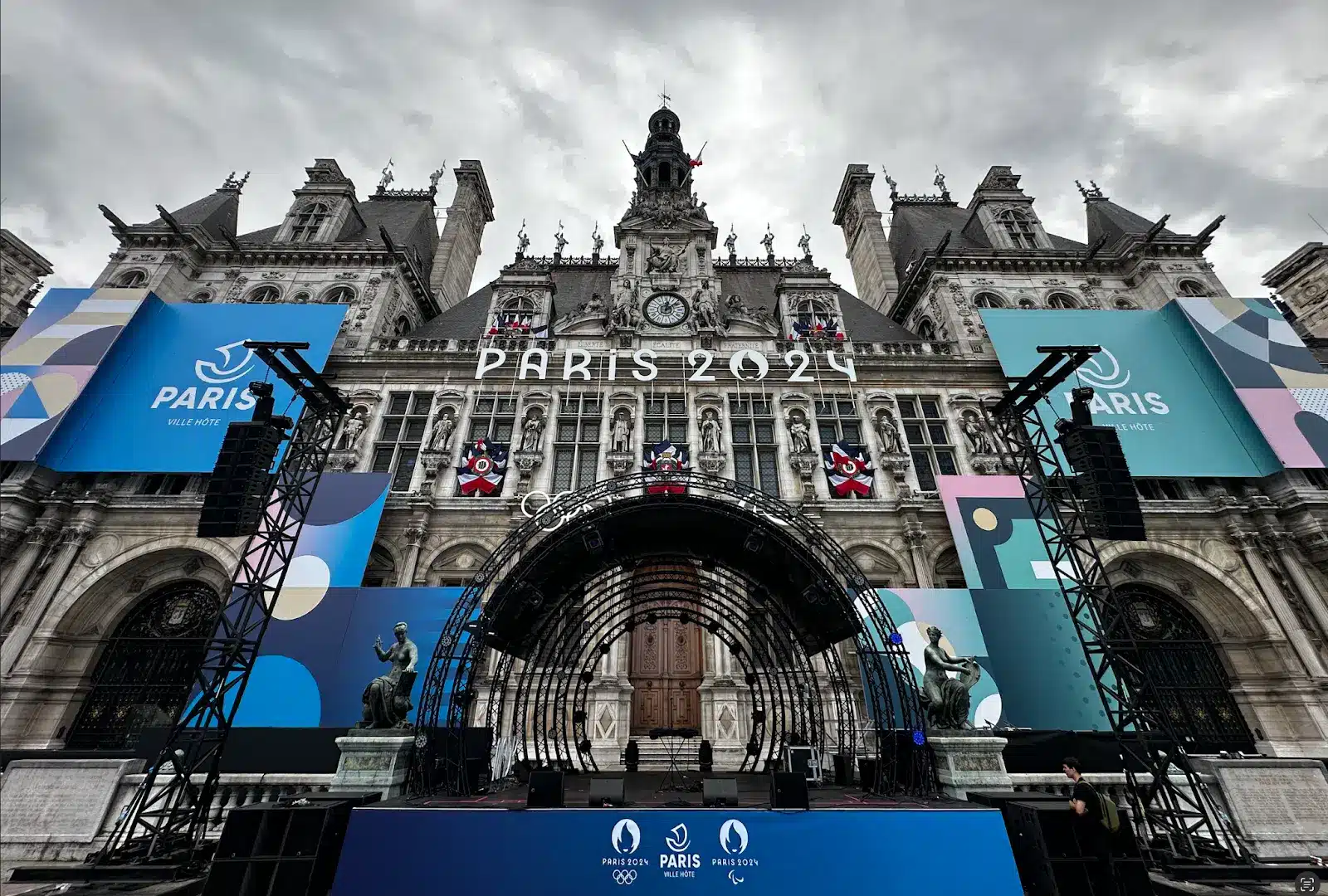
Bringing Statistical Analysis to the World’s Stage
Statistical analysis plays an important role in almost every facet of the actual games and has done so for decades. Cyclists use GPS sensors attached to the bicycles to collect and analyze data that provides keen insights into the race. Historically, this information has been used to judge scoring and give the viewers more engaging facts about the games.
More recently, they’ve been used in other capacities outside games. Sensors help enhance race accuracy and safety, manage traffic, and monitor athlete movements. Everything from vehicles to key personnel now sport sensors that alert organizers of any suspicious activity.
Advancements in machine learning since the Tokyo 2020 Olympics help organizers use sensors for more than speed and location. Now, raw data collected from these events is subject to advanced data analysis to reveal trends. Future Olympic Games will benefit by enhanced performance, improving race strategies, and providing future games with valuable insights to drive better player and business decisions.
No Better Time for Data Analytics
The need for the precision required in the Olympic Games prompted OMEGA to create technology that delivers accuracy to one millionth of a second. This helps to ensure fair and exact race outcomes when judging becomes too difficult for the human eye.
Like GPS data collection, timekeeping involves large volumes of data needing mathematical models to detect anomalies, verify results, and maintain competition integrity. Precision is crucial in sports like cycling and swimming, where milliseconds often determine outcomes.
Data analysis of time splits, acceleration patterns, and performance metrics allows athletes and coaches to refine strategies and training. Advanced algorithms can predict outcomes, optimize performance, and prevent injuries by identifying overtraining patterns. Real-time data analytics during events ensures accurate, reliable decision-making.
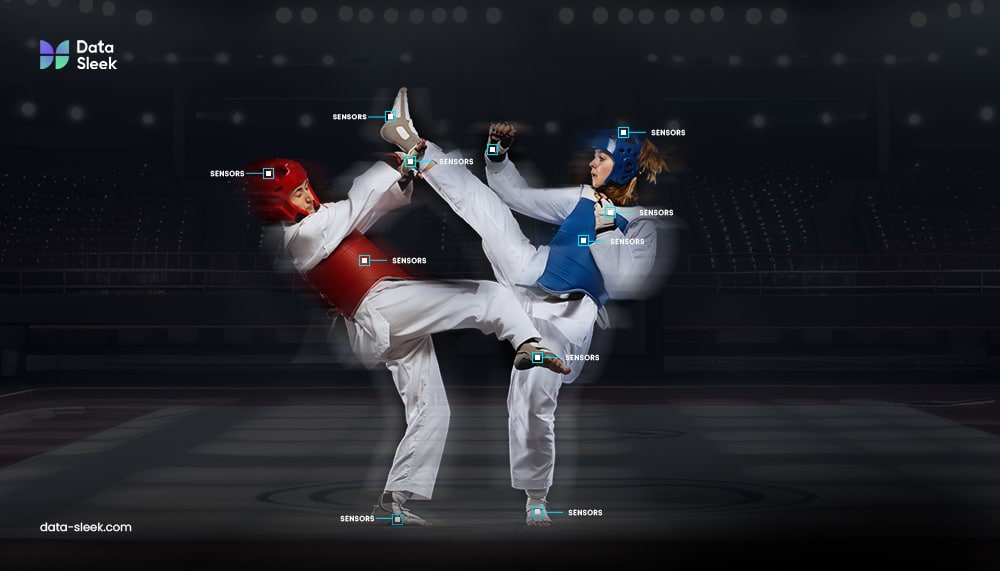
Using Data Analysis to See the Unseen
While the use of sensors in timekeeping isn’t necessarily an innovative process, it is used in clothing. Wearable sensor technology was piloted in the 2020 Tokyo Olympics and fully rolled out during the 2024 Paris Olympics. Wearable sensors are soft and flexible enough to weave into clothing.
Competitors in Taekwondo will have them incorporated into clothing, socks, as well as the head and trunk protectors. This marks a pivotal point in collecting data points for scoring and assessing penalties. Judges will have keen insight into what moves are taken during a competition. Data collected from wearable sensors ensures accurate scoring and penalty assessments.

Paris 2024: A Pioneer in Data Analytics
The Paris 2024 Olympics quickly gained notoriety for their bold stance on waste management and environmentalism decisions. Now, Paris 2024 is making waves in the media with their pioneering use of data analytics.
This is the first Olympic Games where the committee appointed a designated data manager to oversee operations. Manager for Games Knowledge and Data Kevin Martel’s chief job is to optimize processes through data analytics. The ability to analyze data on such a large scale enables the team to make better data driven decisions unlike in any other Olympic Games history.
Advanced analytics provide incredible insight into nearly every aspect of the events. Decisions made in everything from transport, security, food and beverage service, and even press operations will have some form of influence from data analytics. The 2024 Olympics are very quickly demonstrating how advancements in technology and data analytics are crucial for nearly every facet of the games.

Analyzing Raw Data to Eliminate Food Waste and Other Problems
This shift into data-driven decision-making comes from years of preparation to integrate predictive analytics into the Olympics process. According to Martel, one aspect of the data analysis process is to compare assumptions made during the first few days of the event. The IOC has traditionally relied on historical data and other variables to predict the amount of food to provide.
The ability to process data quickly and efficiently will undoubtedly be a game-changer. Organizers can process raw data quickly and adapt purchasing to accommodate the results.
“It’s important to avoid planning for peak days only and thereby prevent a waste of resources,” said Martel. He added: “Looking at Games time, data capture and analysis will help us validate planning assumptions during the first few days and take more efficient and quicker decisions.”
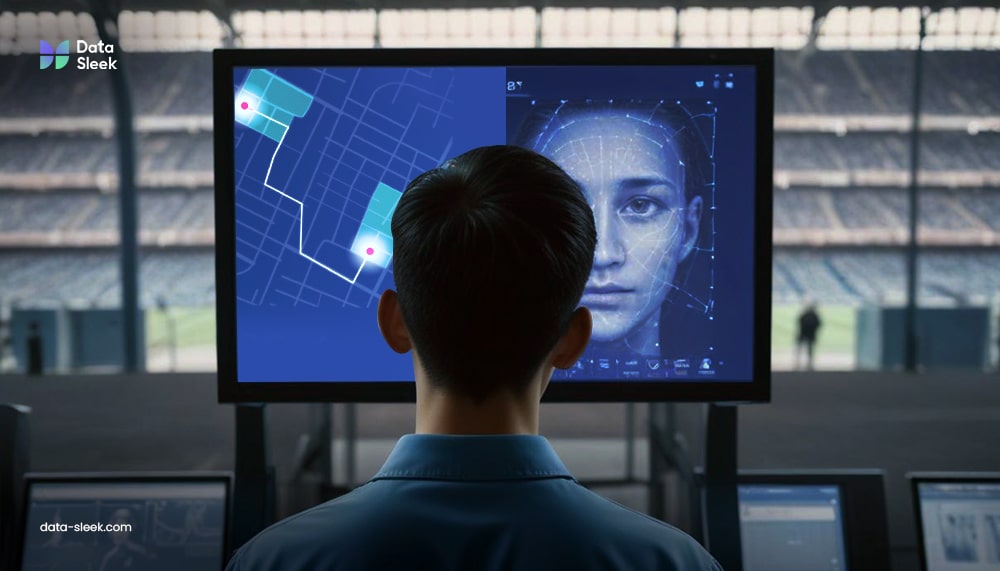
Using Data Visualization to Prevent Crime
But food isn’t the only thing at the top of Martel’s list. The safety of the athletes remains another top priority. Bringing in Olympians from ~200 countries brings with it a lot of safety concerns. Sensors similar to the ones used on bicycles are also affixed to transportation vehicles. This allows organizers to monitor and track the movement of athletes as they move to and from different areas of the stadium.
Having representatives from each country poses a larger than average security and terrorist threat. Recent tensions between Ukraine and Russia add to centuries-old tensions occurring in the Middle East. For Paris 2024, data analytics are key components to terror and crime prevention.
“Thanks to these dashboards,” Martel adds, “anyone at Paris 2024 can understand easily who came to which venue – competition and non-competition – and related events. The dashboards allow users to analyze the volume of stakeholders per venue, the behavior of the stakeholders (arrival pattern), the volume of accreditation and the accreditation process.”

Going for Gold: How Data Analytics is Impacting Scoring
The 2024 Summer Olympics in Paris have brought data analytics to the forefront, not just in enhancing performance but significantly influencing the scoring systems. While sports like cycling and martial arts have straightforward scoring criteria—first to cross the finish line or the last one standing—other disciplines such as gymnastics require a more nuanced approach.
In these more complex sports, judging involves a keen eye and expertise that even the best-trained judges can sometimes falter. This is where Machine Learning (ML) and Artificial Intelligence (AI) are making a transformative impact, reaching even the judge’s table at the Olympics.
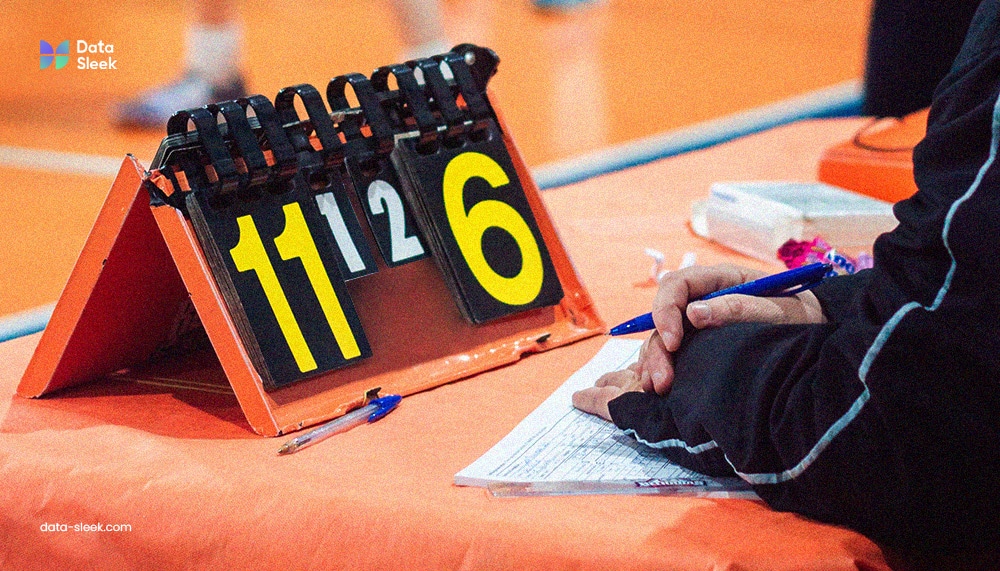
The Challenge of Fair Scoring
Dr. Hugues Mercier has spent the last decade developing models to evaluate and improve judges’ performance in disciplines like artistic and rhythmic gymnastics. Commissioned by the International Gymnastics Federation (FIG) since the 2016 Rio Olympics, Mercier’s work aims to create a fairer system for judging, addressing the inherent biases and environmental factors that can affect scores.
Understanding the scoring process in gymnastics starts with each competitor having a base score of 10 points. Judges then deduct points for mistakes according to the Code of Points (COP) rulebook. However, the simplicity ends there as biases, long hours, and environmental conditions such as room temperature can significantly impact judges’ performance.

The Impact of Environmental Factors
For example, in rhythmic gymnastics, no air conditioning is allowed in the competition room to avoid interference with the ribbons used in routines. This can lead to extremely hot conditions, as evidenced during the 2023 Rhythmic Gymnastics World Championships in Valencia, Spain, where judges endured 95ºF heat for entire days. Such conditions can cause fatigue and irritability, which can impact the accuracy of their scoring, especially towards the end of the day.
Data Analytics to the Rescue
Mercier’s models use data analytics to mitigate these issues. By aggregating data from multiple judges, the models can account for marginal errors and adjust scores accordingly. For instance, if five out of seven judges detect an error, the model can infer the likelihood that all judges should have seen it, thus smoothing out discrepancies.
This approach helps address biases and errors that may occur due to fatigue or environmental stressors. While there’s still a long way to go in perfecting these systems, the use of data analytics is a significant step toward ensuring fairer and more accurate scoring in complex sports.
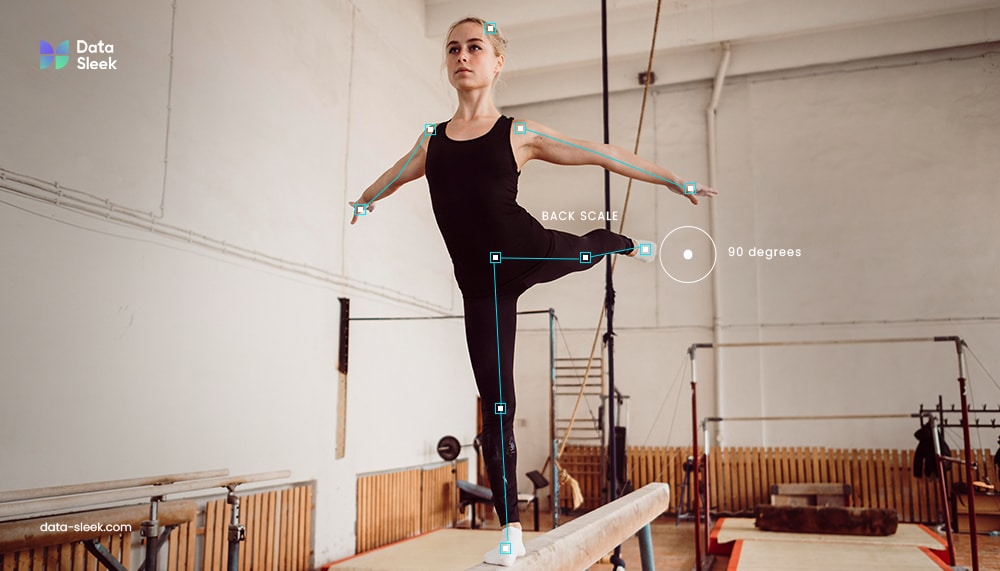
The Future of Scoring
Looking ahead, the integration of data analytics and AI in judging is expected to become even more sophisticated. Predictive models could potentially account for human factors like fatigue more accurately, using biometric data from both judges and athletes to refine scoring systems further. This evolution promises a future where the integrity of competitive sports is upheld through the power of data.
The Future of Judging: The Impact of ML/AI on Olympic Scoring
As we look towards the future, the integration of Machine Learning (ML) and Artificial Intelligence (AI) in Olympic scoring presents a fascinating landscape of possibilities and challenges. Experts currently assert that data analytics cannot fully replace human judges. However, the advancements in Mercier’s model suggest a future where AI significantly enhances the fairness and accuracy of scoring.
Understanding Judges Through Historical Data
Mercier’s model leverages historical data to discern individual judges’ scoring habits. By analyzing data spanning the last decade, the model becomes finely attuned to each judge’s tendencies and patterns. This nuanced understanding allows the system to identify and correct deviations from expected behavior, aiming to mitigate human error and bias.
Addressing Fatigue and Data Quality
One of the current limitations of these models is their ability to account for judge fatigue. Fatigue can significantly impact a judge’s performance, yet the existing models lack sufficient data to accurately pinpoint when fatigue sets in. The pandemic-affected Tokyo 2020 Olympics provided an atypical data set, complicating efforts to train models with consistent and high-quality data. As a result, the models operate with some degree of uncertainty, highlighting the importance of data quality and accuracy.
The Path to Los Angeles 2028
Looking ahead to the Los Angeles 2028 Olympics, the role of AI and data analytics in scoring is poised to become more sophisticated. Predictive models will likely evolve to better understand human emotions and fatigue, especially when integrated with biometric data from judges and athletes. This integration could provide a more comprehensive analysis of performance and judgment, leading to more accurate and fair scoring.
Data processing will continue to play a pivotal role in this evolution. By the time of Los Angeles 2028, the advancements in descriptive analytics will be significant, building on the large-scale use of data analytics first seen in Paris 2024, the first post-pandemic event to fully utilize these technologies.
Looking Towards the Future: What We Can Expect for Los Angeles 2028
While we should take the time to appreciate the large strides made at Paris 2024, data analytics in Los Angeles 2028 are already ramping up. The so-called “Smart City” Olympics are data analysts’ dream–LA’s 53-page plan outlines key components including infrastructure, data, digital inclusion, digital services, and governance as part of its data management roadmap.
The plans include a massive expansion of its fiber optic “neural networks” to enable better resource allocation and crime prevention. LA plans to expand its title as #1 Solar City in America on a global scale by switching to LED street lights and implementing charging systems that can charge vehicles as they drive.
Making these changes are expected to reduce LA’s power consumption by 15% while reducing the massive impact of pollution generated by attendees. Results from advanced data analytics that we’re seeing in Paris this year is expected to pale in comparison to the improvements in LA.
Paris 2024’s commitment to the data analytics sets the stage for future trends in sports. We saw the budding potential of it in Tokyo with very rudimentary forms of data analysis and data visualization. For Los Angeles and beyond, data analytics will take the center stage as an integral part of the Olympic Games.
Don’t Settle for Silver, Get Your Business In Shape
Don’t let big data analytics prevent your business from reaching the top of the leaderboard. Get your business in shape with a free data management consultation. Our experts can’t help you at the gym, but we can definitely help your organization develop a data analytics process that fits your business needs.
Our team of experts equip organizations like yours with the specific tools needed to effectively analyze data. Whether it be something simple like implementing a more efficient data storage system or implementing a complex infrastructure, we’re here to help.
We’ve helped many businesses reach their data analytics goals. Ready for your company to take the stage and secure the gold? Schedule a free consultation with us today!

